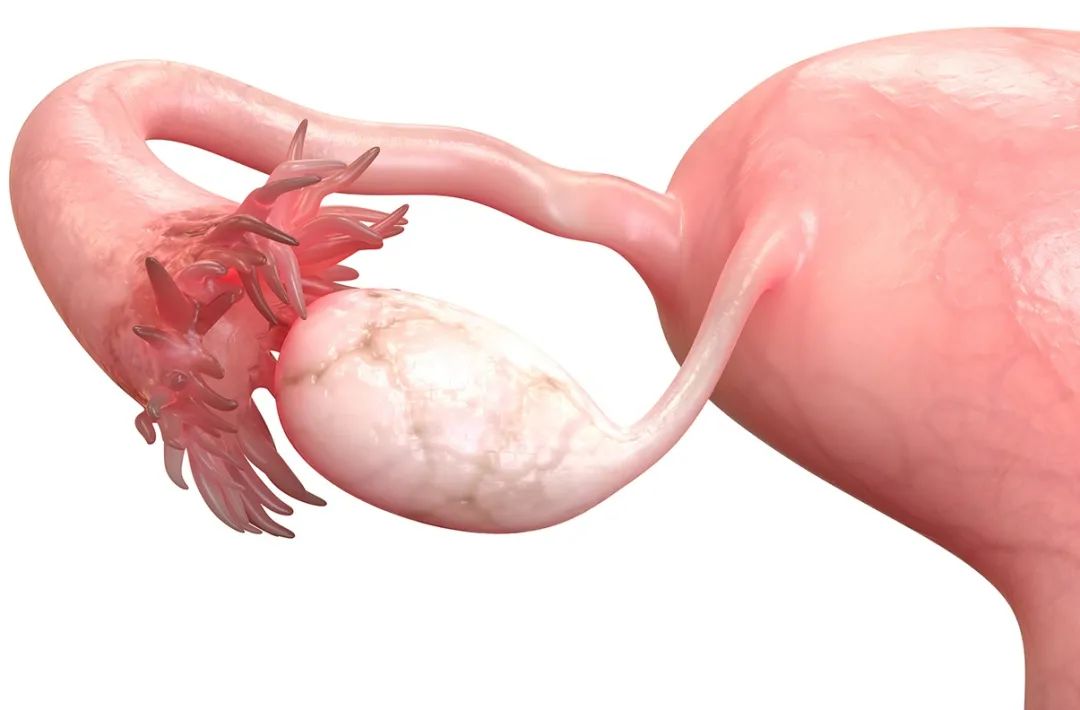Women have a decline in fertility after the age of 30!"Sofele" ovaries may be useful
Author:Journal of China Science Time:2022.06.22
Text | Wang Fang

Image source: MagicMine/Isstock
I hope that the expectant parents who are pregnant are facing a problem that I do n’t wait: the older the mother, the more fertility decreases.
A new study of mice may help explain the reason. With age, the ovaries will accumulate "stiff" organizations. Researchers have found that reducing the number of such tissues will "soften" the ovaries and restore animal fertility. The same method is also likely to play a role in humans. Related papers have recently published in "Scientific Progress".
Fracesca Duncan, a biologist, who did not participate in research, said that the research was "a huge progress" that showed that the problem of childbirth related to age -related fertility was "not a daydream."
Women's fertility ended at menopause, but in fact, it began to decline around 30 years old. Scientists have never knew why. Recently, people have begun to doubt fibrosis -an abnormal hyperplasia of connective tissue. With age, fibrosis can harden the heart, lungs, and liver, as Duncan and colleagues revealed in 2016, it will also harden the ovaries.
Takashi Umehara at the University of Adelaide, Australia, and colleagues hope to determine whether ovarian fibrosis is the cause of the decline in fertility.
Although female rats do not experience menopause, their reproductive ability will weaken as they increase. The researchers first used a approved fibrosis drug to use a 15 -month -old mouse (equivalent to the age of 50). These mice are usually unable to reproduce because they are too old, but the drugs make more than half of mice ovulation.
Researchers have fertilized eggs in the diner in the laboratory, and healthy embryos developed, indicating that the eggs are healthy.
Researchers also tested this drug on a 12 -month -old mouse (equivalent to 35 years old). Rebecca Robker, a senior author and a reproductive biologist at the University of Adelaide, said: "This is the clinical needs."
Drugs once again played a role in promoting reproduction, which increased the number of ovulation of animals by nearly doubled. The eggs look healthy, and the embryo produces embryos after fertilization. However, younger mice did not benefit from this drug.
Despite success, researchers are not sure whether fibrosis will improve fertility. "We don't know if fibrosis is reversible." Robker said.
However, when the researchers carefully observed the ovaries of the animal under the microscope, they found that the fibrosis of the two groups of mice who received drug treatment was much lower than that of the control group.
Defective mitochondria (cells with energy) can cause ovarian fibrosis. As mice and humans grow older, these structures begin to appear "faults". In order to explore the role of mitochondria in infertility, Robker and colleagues took a drug BGP-15 for 14-month-old mice, which can regulate the cells.
Compared with unprecedented mice, the number of eggs excreted by mice that take the medicine is more than twice the former, and the degree of ovarian fibrosis is also low. Researchers have found that BGP-15 stimulates mice to produce an enzyme that can dissolve collagen fibers in connective tissues and release follicles.
The researchers also tested two other molecules that enhanced mitochondria -two -meta and MitoQ. The former was an anti -diabetic drug, which was often regarded as anti -aging supplements. Both molecules can reduce the ovarian fibrosis of elderly mice, but cannot stimulate ovulation.
Obesity can inhibit human fertility. Researchers have found that fibrosis is common in the ovaries of young obese mice. BGP-15, Two-two dual-dual-dual-dual-dual-in-laws and MITOQ inhibit their fibrosis and stimulate ovulation.
"This is the first evidence that this is the first evidence that the ovarian fibrosis related to age related to age related to age, said, said that reducing fibrosis in any way can extend fertility in any way."
However, she warned that reducing fibrosis did not restore mice's ovaries. "This is helpful, but it is not reversed."
An obstacle to the study is that the ovaries are hidden in the abdomen, and it is difficult to determine whether it has fibrosis -it is usually diagnosed after surgical removal of the ovaries. "We need to find a non -invasive method," Robker said.
Related thesis information:
https://doi.org/10.1126/science.add5470
"China Science News" (2022-06-22 The 2nd edition of the original title of "Soft-Soft-Deluctity" ovaries can help treatment infertility)
This article is only the purpose of information exchange. The views of the article do not represent the position of the China Science News, nor does it represent the support or opposition of the Chinese Journal of Science. This article is not recommended by the treatment plan. If you need to obtain a treatment plan, go to a regular hospital for treatment.
Edit | Zhao Lu
Capture | Zhihai

- END -
Healing the mind in the form of drama, "the first Wuhan Youth Psychological Scenario Show" started

The Yangtze River Daily Da Wuhan Client June 26 (Reporter Mao Yin Correspondent Zh...
"How can children have psychological problems?": 8 doubts about the psychological counseling of adolescents

Why do adolescents have mental health problems?What are the general ways for youth...